Homelessness is a crisis in California. Why are 2020 candidates mostly ignoring it?
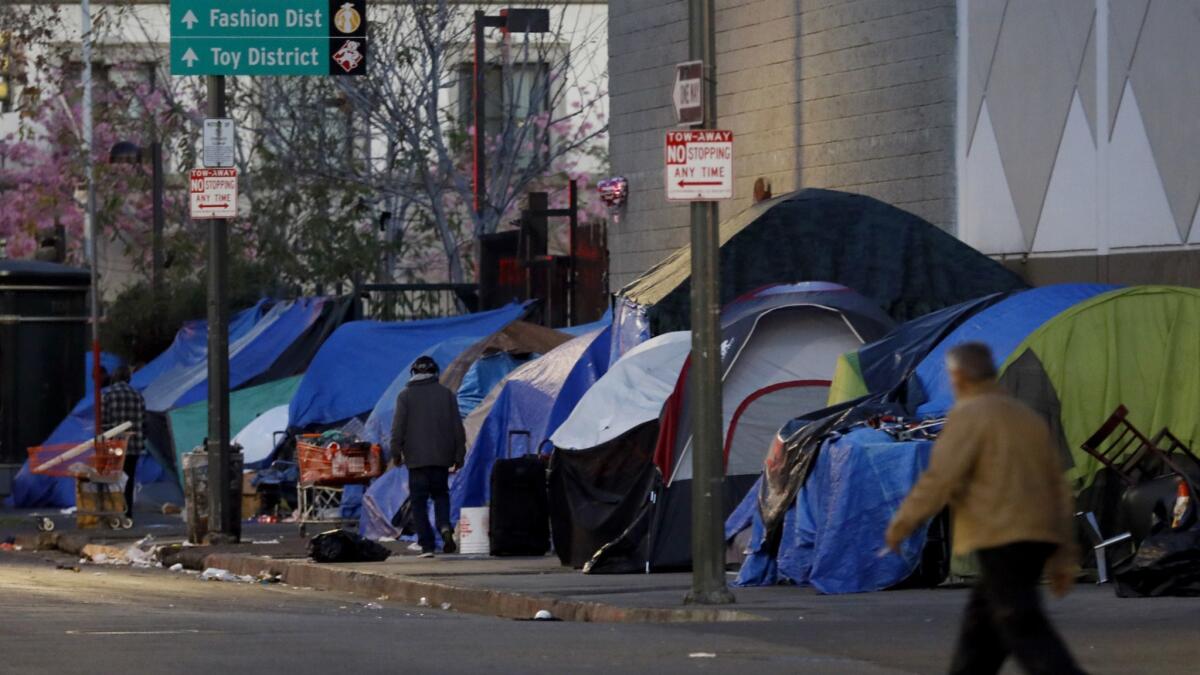
When new figures released last week showed a jarring rise in homelessness around Los Angeles, the response throughout Southern California was shock and indignation.
The reaction from the crowded field of Democratic presidential candidates: silence.
While White House hopefuls crisscross the country, making big promises on issues such as college debt relief, climate change and boosting the working and middle classes, they have largely ignored an issue — the soaring number of unsheltered Americans — that has reached a crisis point in communities on the West Coast and elsewhere.
The reason, said Sam Tsemberis, is simple.
“It doesn’t have a constituency or an advocacy group that has enough money,” said Tsemberis, who leads Pathways Housing First, a Los Angeles nonprofit that works to end homelessness. “The National Coalition for the Homeless is not the National Rifle Assn.”
Not that voters are uninterested. In California, for instance, a sizable majority of likely voters — Democratic, Republican and independent — consider homelessness a big problem, according to a recent survey by the nonpartisan Public Policy Institute of California.
But even as presidential candidates pay greater attention to California, mindful of its early March 3 primary, none has seized on the crisis as a rallying cry.
The silence is particularly notable coming from California’s Sen. Kamala Harris, who lives in L.A. Her campaign declined requests for comment on the latest homelessness figures. Harris and her rivals broadly address issues relating to homeownership or rent affordability, but offer little aimed at the desperate plight of those already living on the street.
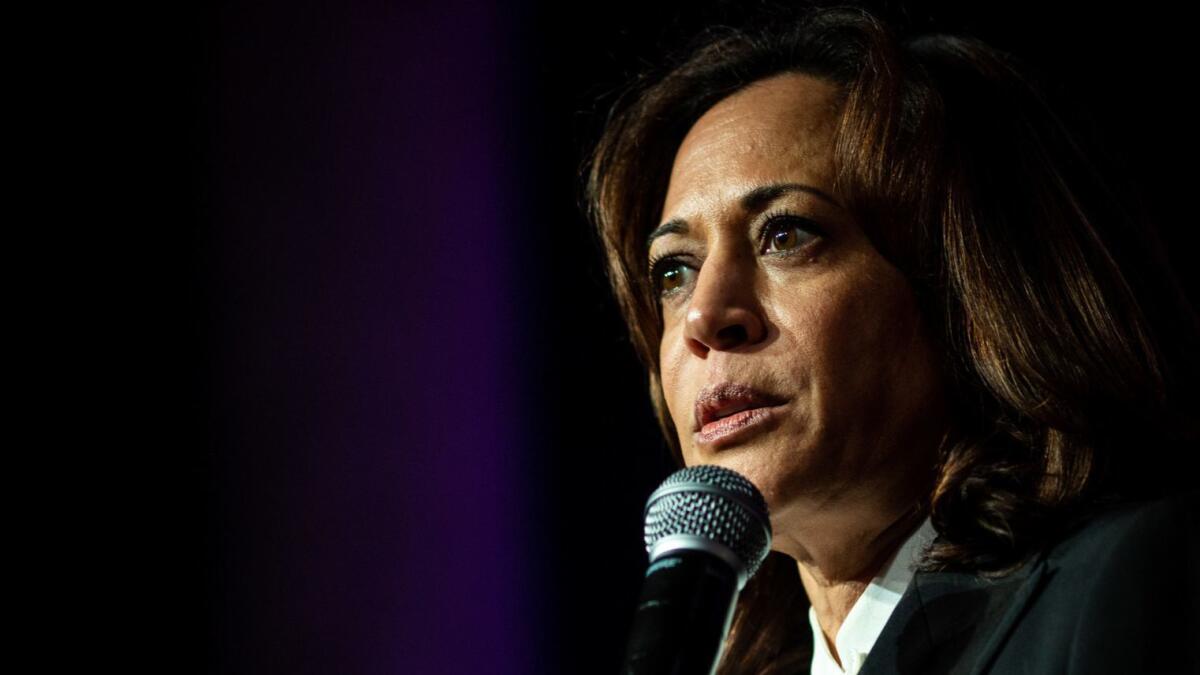
Harris has two housing proposals: One is a subsidy for renters paying more than 30% of their income on housing. The second is a monthly cash stipend for low- and middle-income workers.
Both plans, her campaign says, would target the neediest and save people from evictions, a leading cause of homelessness.
The twin issues of affordable housing and homelessness are a “crisis [that is] not receiving the kind of attention that it deserves,” she said in a speech to the National Alliance to End Homelessness last year before she launched her candidacy.
Garcetti faces heat over L.A.’s homeless crisis but remains optimistic. Is he being realistic? »
Sen. Cory Booker of New Jersey, the former mayor of Newark, is the only one with a housing proposal that specifically talks about eliminating homelessness nationwide, by doubling funding to $6 billion for federal grants geared toward serving that population.
Massachusetts Sen. Elizabeth Warren’s housing plan ties in factors like affordable-housing scarcity, housing discrimination and the needs of people who require substance-abuse treatment, all issues that influence a person’s vulnerability to homelessness.
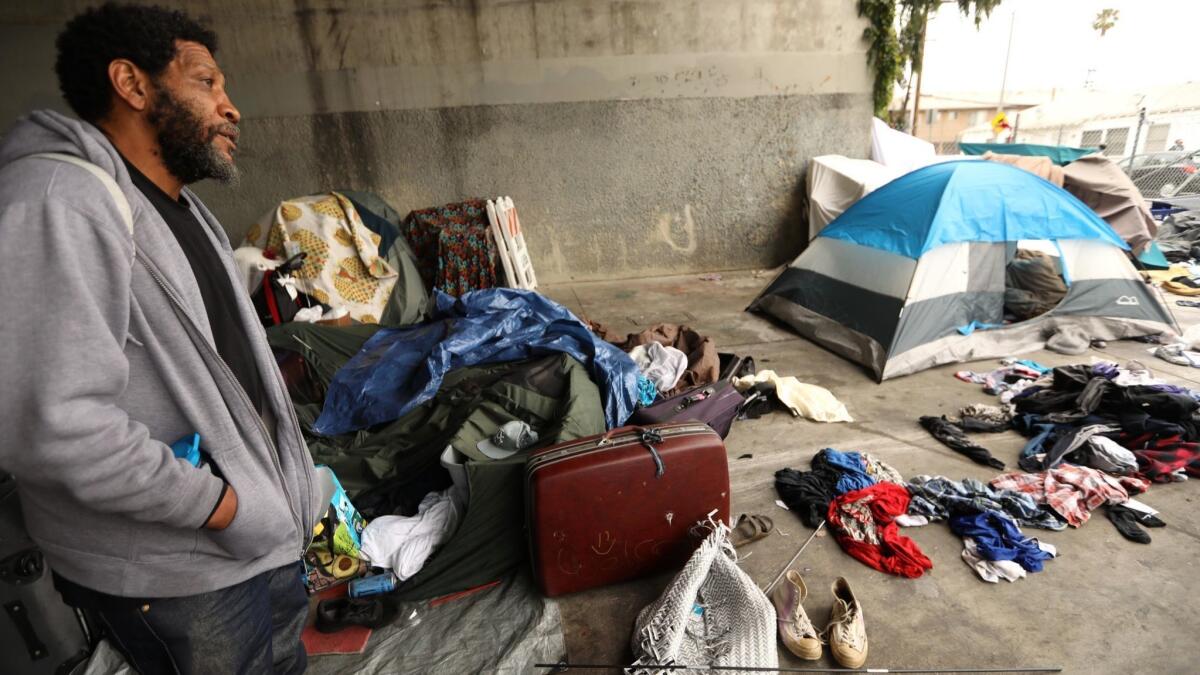
»
Vermont Sen. Bernie Sanders’ campaign website features his stands on 25 issues, but housing is not among them. When he ran for president four years ago, Sanders called for increased federal spending on rent vouchers for the poor, repairs to public housing projects and construction of low-rent housing.
In March, Sanders tweeted that the country has “a moral responsibility to make certain that no American goes hungry or sleeps out on the streets.”
Former Vice President Joe Biden’s campaign did not respond to requests for the candidate’s plans to address homelessness.
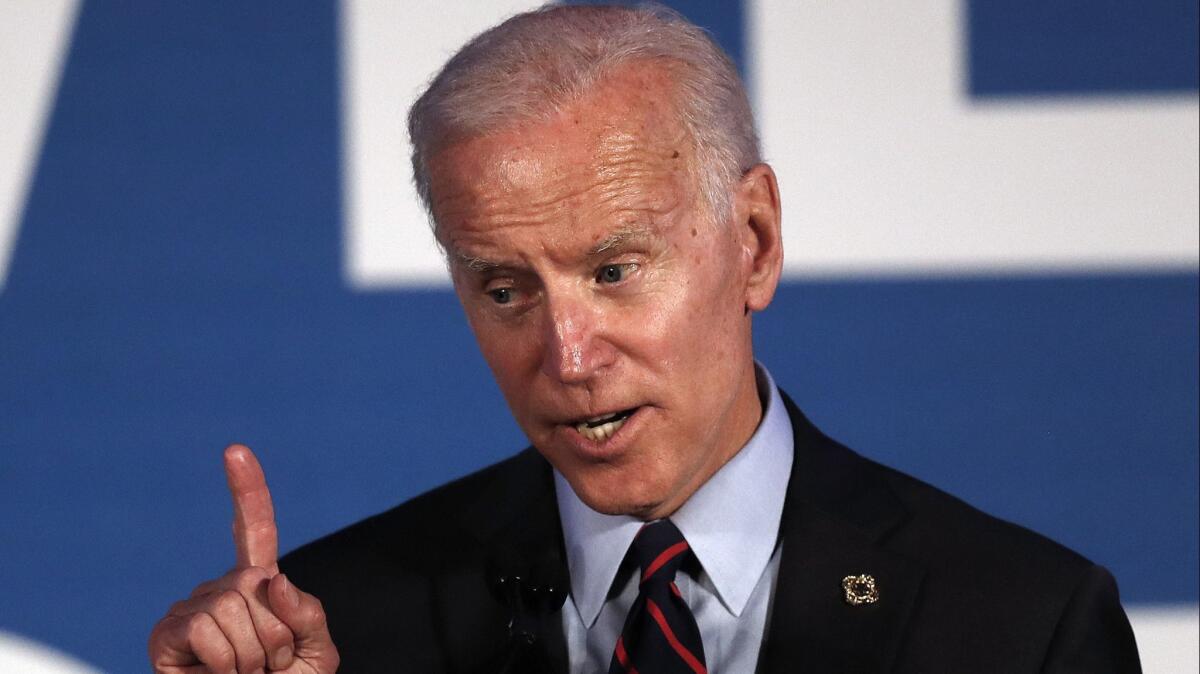
Julián Castro, who was Housing and Urban Development secretary under President Obama, stood out among Democratic rivals by highlighting homelessness on the campaign trail. On an April visit to Nevada, he toured a storm-drain tunnel beneath the Las Vegas Strip where hundreds had set up encampments.
“This is not the kind of issue that a lot of people open their arms to, but they should,” Castro said Thursday in an interview.
He is set to release his housing agenda, including plans to reduce homelessness, in the weeks ahead.
“I believe we should treat housing as a right,” Castro said, saying his proposal would ensure housing for every American who couldn’t afford it.
Other big antipoverty programs that meet basic human needs, such as food stamps and Medicaid, serve everyone who qualifies, but three-quarters of those who can’t afford basic housing get no federal help, said Steve Berg, vice president at the National Alliance to End Homelessness.
Advocates say they are pleased to see some of the candidates rolling out housing plans, noting the subject of affordability is getting more oxygen than in past presidential campaigns.
Talking about building more housing is “necessary but not sufficient,” said Sacramento Mayor Darrell Steinberg, pointing to a need to discuss additional supportive services, mental healthcare and substance abuse treatment, which all factor into getting people off the streets.
“When you think about what’s most visible and what’s really plaguing communities in terms of the level of frustration and pain and ‘oh my God, this is out of control,’ it is the long-term chronically homeless that are living under the freeway or on the riverbanks or in the center of our parks,” said Steinberg, a former leader of the California state Senate.
“There are no easy solutions,” and any remedies will take a long time, he said. “As a result, people in politics tend to back off and not go in head-first.”
Homeless people need more restrooms, L.A. politicians agree. But for $339,000 each? »
The sense that homelessness is an intractable problem may cause politicians to shy away from bringing it up directly, said Todd David, executive director of the San Francisco Housing Action Coalition. Anyone who tries, he said, could be “accused of giving it lip service.”
Those on the front lines of the epidemic say homelessness should not be seen as simply a local concern.
Historically, the federal government took two big steps to ensure housing for the poorest Americans: construction of public housing that started during the Great Depression, followed in the 1970s by a voucher program to subsidize their rent from mainly private landlords.
“Homelessness is a national crisis that requires national leadership, and that’s what I want to hear from our candidates and see in their policy plans,” said Los Angeles Mayor Eric Garcetti, who has brought up the issue with multiple Democrats running for president. (Garcetti considered joining the race but decided against it in January; the city’s chronic homeless problem would have been a weight on his candidacy.)
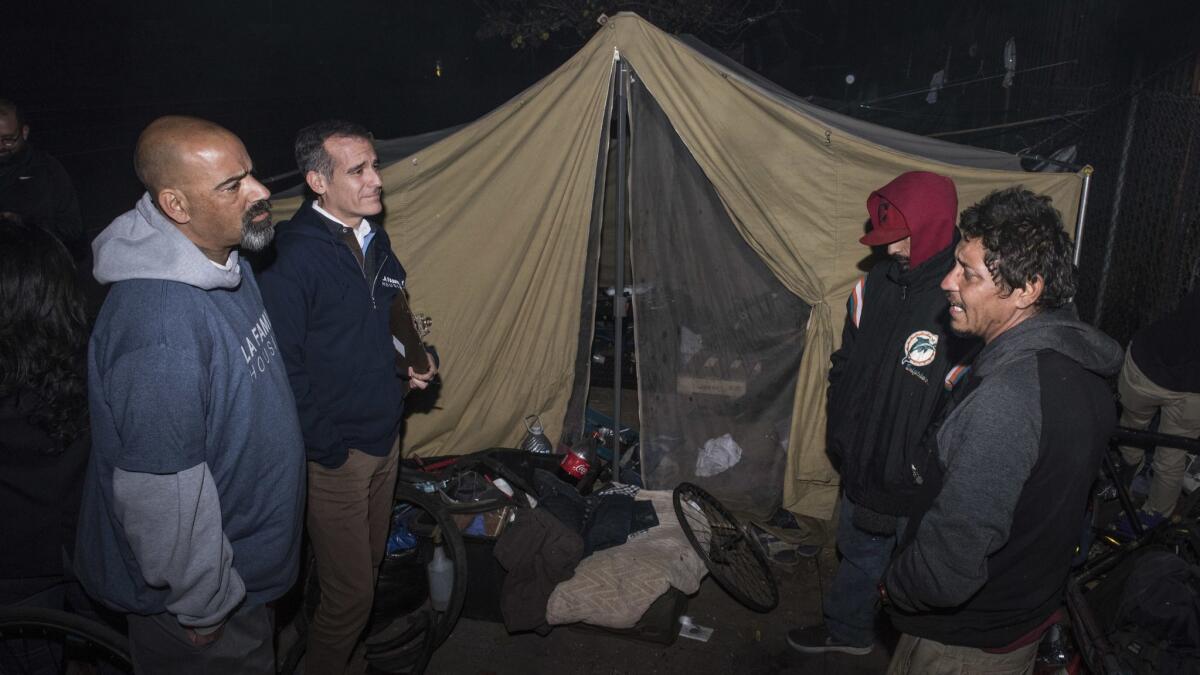
In 2016 and 2017, Garcetti led local ballot measure campaigns that secured more than $1 billion in public funding to house homeless people. But tangible results will take years, and critics have questioned whether he’s treating the crisis with enough urgency.
The report, released jointly last week by the city and county, showed the homeless population jumped by 12% to nearly 59,000 in L.A. County and by 16% to more than 36,000 in L.A.
Steinberg, who has endorsed Harris for president, believes there’s an untapped pool of voters who care about homelessness — and related issues including mental health — for candidates who choose to explicitly take it on.
“It is the unaddressed issue of our time,” he said. “The candidate who first addresses it in a meaningful way as a priority will get rewarded.”
Times staff writers Mark Z. Barabak, Chris Keller and Matt Pearce contributed to this report.
More to Read
Get the L.A. Times Politics newsletter
Deeply reported insights into legislation, politics and policy from Sacramento, Washington and beyond. In your inbox three times per week.
You may occasionally receive promotional content from the Los Angeles Times.












